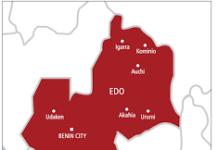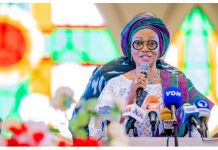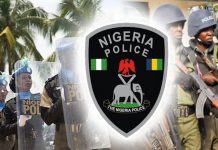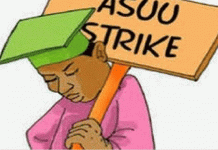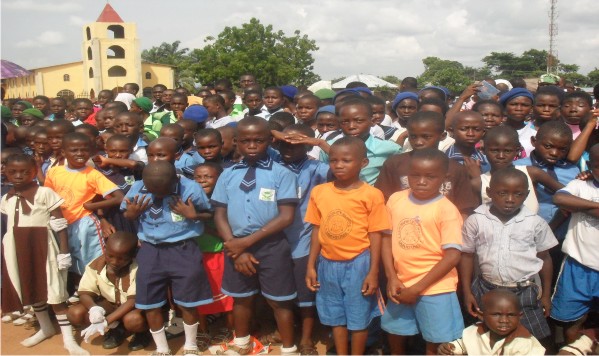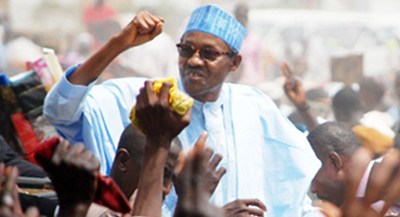
By Ethelbert Okere
In an earlier article previewing President Buhari’s official visit to the United States of America, I did share in the optimism of many Nigerians that the US trip was going to be a lot better than the G7 trip to Germany. The reason Nigerians were that optimistic was simply that the relevant lessons of the lapses of the Germany outing have been learnt by both the president and his handlers.
However, that write-up offered us an opportunity to point at some other mannerisms of the President which may not appear obvious to his handlers but which could do considerable damage to the collective psyche of Nigerians; in what I referred to the president’s penchant for talking down on the nation. For want of a better language to paraphrase the view I express in that article, let me lift, verbatim, aspects of it:
“President Buhari, for reasons we need not go into here, has this penchant for describing our dear country in hyperboles and indeed in unflattering tones. Agreed, things are not as they should be but such words as “shame”, “disgrace” etc are too harsh to be applied on the country by the president. Resort to negative characterization of the country is too ordinary to come from a president who is supposed to personify the sovereignty of the state”.
I then gave instances where the president employed the two words which, in our estimation, both amount to a talk down on the country and a trivialization of the issue(s) at stake. One was the president’s reaction to the unpaid salary palaver where he described the situation as “a disgrace.” Our view was, and still is, that bad as the situation was (is), it is not for the president to use such a platitude that should be left for student and trade union activists.
We also saw as inappropriate, the president’s “how are the mighty fallen”, remark while describing his discomfiture over the reliance (assuming that was really the case) on the military of some neighbouring countries in the fight against insurgency in the Northeast. Our view was (is) that apart from that the expression was a cliché, which should have no place in our presidential lexicon; it is a talk down on the nation which he now leads. The above instances were to form the basis for advising the president to be wary of his choice of words while in Washington in order to meet the expectation of Nigerians who were looking forward to a good outing.
While in the US, President Buhari did not disappoint, in terms of carriage and display of charisma. But he failed it again with what I would describe as his “pressure” theory on the last general election that brought him to power. In response to his host’s, (President Barrack Obama) speech, President Buhari said the success of the last general election in Nigeria was as a result of the “pressure” put on the previous administration by the US and Europe. President Buhari said it was because America and Europe told the “previous government” that it will not accept anything less than a free and fair election that the general election was successful.
Again, I think this is another superlative talk in a bid to show appreciation to the US government for, probably, backing his candidature. But methinks that the way President Buhari put it, he succeeded in rubbishing the collective effort by Nigerians to see to the success of that election. To attribute it to “pressure” from America and Europe is to deny Nigerians the credit of comporting themselves properly throughout the period of the election despite heightened anxieties. Reducing the entire thing to pressure by America and Europe is to wipe out the import and significance of that election for Nigerians. It obliterates the sense of sacrifice and determination that were so evident among Nigerians, irrespective of partisan interest, as they went for that election and in receiving its outcome.
Indeed, the “pressure” theory is, my view, a negation of the “change” mantra by the president’s party, the All Progressives Compressive (which the president referred to at “All Nigeria People’s Congress”) which its faithful bought and swore to. As a matter of fact, it is safe to argue that even some non-APC Nigerians liked the “change” talk but could not possibly join in the mouthing for obvious partisan reasons.
In choosing to conduct themselves so well during the elections, the generality of Nigerians did not know of this “pressure” from outside. On the converse, I think it is reasonable to argue that part of the comportment might have been informed by the speculation, fuelled by a US prediction some years back that Nigeria was going to disintegrate in 2015. That was the information Nigerians had before then. I do not think they knew of this pressure and one can state that even if they knew, it was of no value because, majority of Nigerians had made up their minds to see to the peaceful conduct of that election.
Furthermore, President Buhari’s “Pressure” theory contradicts his earlier acknowledgement that President Goodluck Jonathans saved the nation from a conflagration by effortlessly conceding defeat in the presidential election. Later, the president acknowledged that the telephones calls he got from both Presidents Obama and Jonathan gave him a lot of relief during those critical moments.
Now, the question that would arise from President Buhari’s pressure theory is whether Jonathan actually acted in good faith and patriotically or out of pressure from the US and elsewhere. My view is that the latter is most unlikely and I would have preferred the president to work with that. Buhari’s supporters believe that Jonathan conceded defeat because he saw that he actually lost and it is better to allow them to live with that confidence. On the matter of free and fair, Nigerians also believe that they were determined to have one and that the administration couldn’t have dared it to do otherwise. That is a better way of building the confidence of the people in them.
Differently put, we should bank on the fear or preferences of the electorate, not pressure from outside. Agreed, the US and some other countries might have taken one or two steps to ensure that the election was free and fair but it is most unlikely that they would want the impression created that it was external “pressure”, not the will and vigilance of the people of Nigeria, that did it.
Either way, therefore, the pressure theory is a misrepresentation for the both Nigeria and the US plus Europe. It is even doubtful if the America people were impressed by all that, both from the view of diplomacy and democratic expediency. It does not elevate the quality of Nigeria’s democracy. Agreed, things are not as expected but we should at least give ourselves credit for running a democracy, even with all its flaws, for sixteen years, nonstop. It has never happened before. More important, we proved all the negative prognosis about us including the one on disintegration wrong. Notwithstanding this, President Buhari’s US trip was a wonderful outing. As usual, the poise was there and I believe every Nigerian was proud to see him on stage.
Welcome!Log into your account

